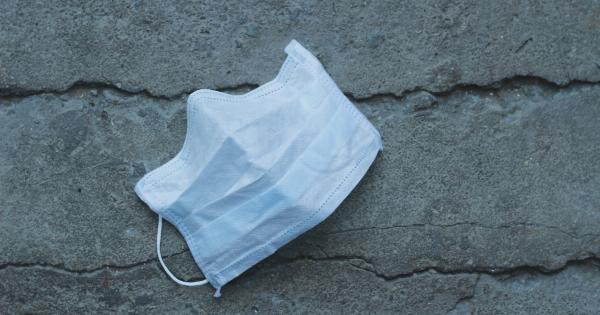The bladder is an essential organ in our body responsible for storing urine until it is ready to be expelled.
However, certain foods and beverages can irritate the bladder, leading to various problems such as frequent urination, urgency, and even bladder infections. In this article, we will explore some common culprits that can trigger bladder irritation and discuss the importance of following a bladder-friendly diet to maintain optimal bladder health.
Understanding Bladder Irritation
Bladder irritation refers to the discomfort or inflammation experienced by individuals, typically resulting in urinary symptoms such as pain, urgency, and increased frequency of urination.
While there can be various causes of bladder irritation, one of the major culprits is our diet. Some foods and beverages contain substances that can irritate the bladder lining, leading to these unpleasant symptoms.
Foods That Irritate the Bladder
1. Caffeinated Beverages: Coffee, tea, and energy drinks are known to be bladder irritants. Caffeine acts as a diuretic, increasing urine production and causing the bladder to fill up more frequently.
Additionally, caffeine can irritate the bladder lining directly, exacerbating symptoms in individuals with bladder sensitivity.
2. Alcohol: Alcohol can have a similar effect on the bladder as caffeine. It increases urine production and acts as a diuretic, leading to more frequent trips to the bathroom.
Alcohol also irritates the bladder lining, making it more susceptible to inflammation and discomfort.
3. Sodas and Carbonated Drinks: Carbonated beverages, especially those sweetened with artificial sweeteners, can worsen bladder irritation.
The carbonation in these drinks can put pressure on the bladder, leading to increased urgency and potential leakage. Moreover, artificial sweeteners like aspartame and saccharin found in diet sodas may trigger bladder symptoms in some individuals.
4. Spicy Foods: Spices like chili peppers, hot sauces, and other spicy seasonings are notorious for irritating the bladder.
They can cause inflammation and induce a burning sensation in the urinary tract, leading to discomfort and frequent urination.
5. Acidic Foods: Acidic foods such as tomatoes, citrus fruits (oranges, lemons, grapefruits), and certain juices are known bladder irritants.
The high acid content in these foods can irritate the sensitive lining of the bladder, causing irritation and worsening urinary symptoms.
6. Artificial Sweeteners: Artificial sweeteners, like those found in sugar-free gum, candies, and some processed foods, can irritate the bladder and worsen symptoms in individuals with bladder sensitivity.
Common artificial sweeteners to avoid include saccharin, aspartame, and sucralose.
7. Highly Processed Foods: Highly processed foods, such as fast food, pre-packaged snacks, and frozen meals, often contain additives, preservatives, and artificial ingredients that can trigger bladder irritation.
These foods are typically high in sodium, which can lead to water retention and increased urine production.
8. Citrus Fruits: While citrus fruits are generally healthy, they can irritate the bladder in some individuals.
If you experience bladder symptoms, it may be worth avoiding or reducing your intake of oranges, lemons, grapefruits, and other citrus fruits.
9. Dairy Products: Some individuals may find that dairy products, such as milk, cheese, and yogurt, exacerbate their bladder symptoms. Dairy products can cause inflammation and contribute to bladder irritation in sensitive individuals.
If you suspect dairy to be a trigger, try eliminating it from your diet or opting for lactose-free alternatives.
10. Artificial Food Additives: Certain artificial food additives, such as MSG (monosodium glutamate), can irritate the bladder and worsen urinary symptoms.
It is important to read food labels carefully and avoid products containing these additives if you are prone to bladder irritation.
Tips for a Bladder-Friendly Diet
While eliminating all potential bladder irritants from your diet may not be necessary, it can be helpful to identify specific triggers and make adjustments accordingly. Here are some tips for maintaining a bladder-friendly diet:.
1. Keep a food diary: Record your food and beverage intake along with any bladder symptoms experienced. This can help you identify specific triggers and make informed dietary changes.
2. Stay hydrated: Drinking enough water is crucial for flushing out toxins and maintaining overall bladder health. Aim to drink at least 6-8 cups (48-64 ounces) of water per day, unless otherwise advised by your healthcare provider.
3. Limit caffeine and alcohol: Reduce your intake of caffeinated beverages and alcohol, as these can contribute to bladder irritation and increased urine production.
4. Opt for non-acidic fruits: If you enjoy fruits but experience bladder irritation, choose non-acidic options like bananas, pears, and apples. These are less likely to trigger symptoms compared to citrus fruits.
5. Choose healthy proteins: Instead of processed meats, opt for lean sources of protein like chicken, fish, tofu, or legumes. These options are less likely to irritate the bladder and contribute to inflammation.
6. Cook your own meals: Preparing meals at home gives you better control over the ingredients used. Try to incorporate fresh, whole foods into your diet and limit the consumption of processed and packaged foods.
7. Limit spices and hot sauces: If you enjoy spicy foods but notice urinary discomfort, consider reducing the amount of spices or eliminating them from your diet altogether. Experiment with milder flavors or alternative seasonings.
8. Be mindful of portion sizes: Overeating can put additional strain on the bladder and digestive system. Opt for smaller, more frequent meals to minimize discomfort and unwanted bladder stimulation.
Conclusion
Following a bladder-friendly diet can significantly reduce bladder irritation and improve overall bladder health.
While it may be challenging to completely eliminate all potential irritants, being aware of foods and beverages that commonly trigger symptoms can make a noticeable difference. By adopting simple dietary modifications and paying attention to your body’s response, you can take proactive steps to keep your bladder happy and healthy.





























